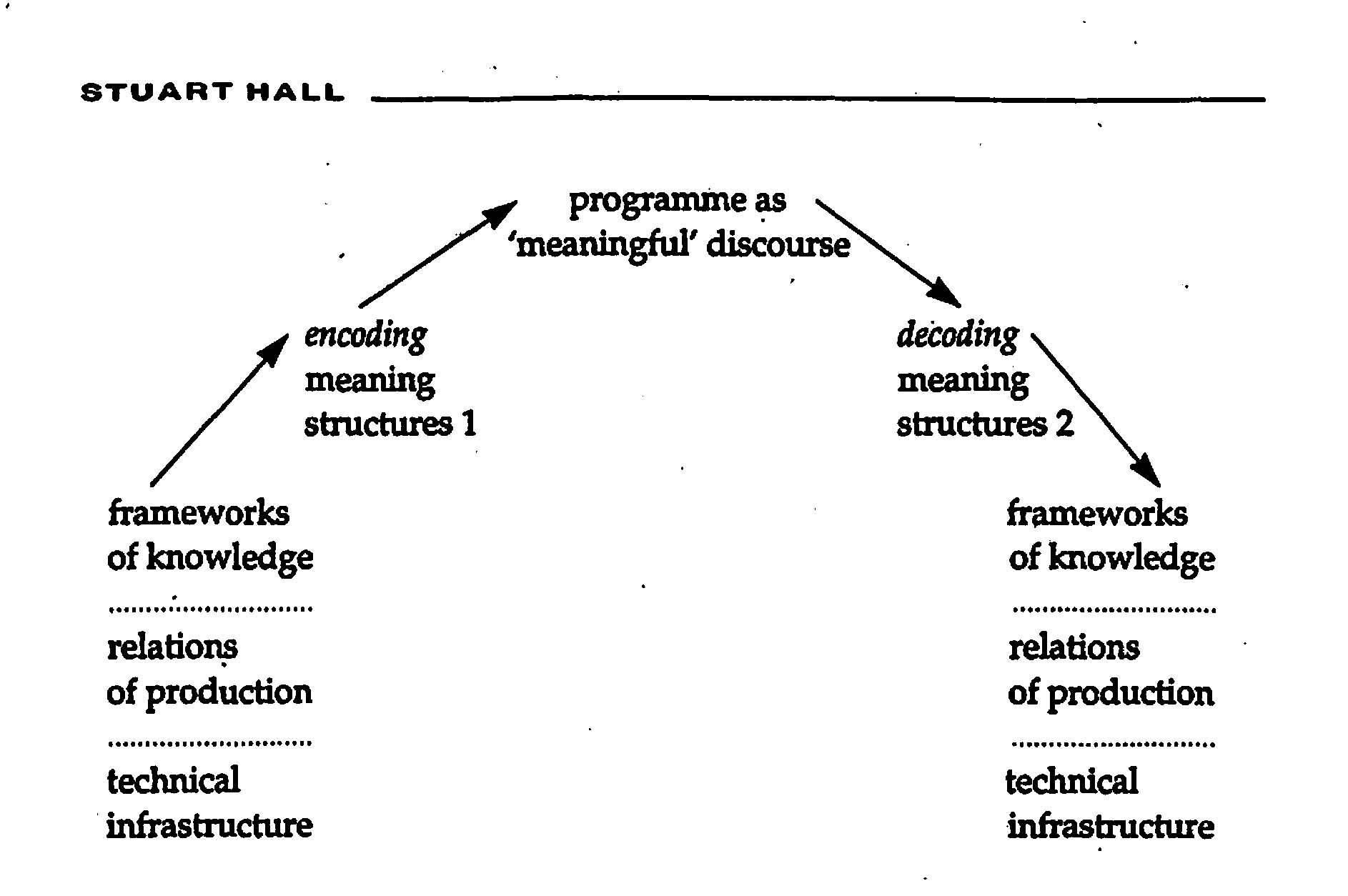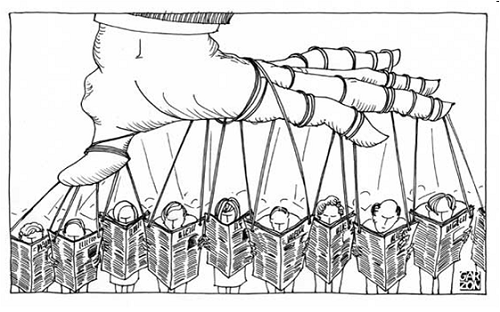Stuart Hall’s “Encoding/Decoding,” in which he argues about the struggle within communicative exchange that occurs between the producers and consumers or encoders and decoders. Hall presents the idea that the producer encodes the message with intended meaning. This message is sent to the receiver who then decodes the message.
There is a movement:
encoder –>message—> decoder.

Lecture 06: Encoding, Decoding | CULTURAL STUDIES 101 culturalstudies101.wordpress.com
Hall does not stop with the linear model. He feels that this is a cycle. The aim of the producer is for the consumer to understand the encoded message. Hall argues that there is a “hegemonic viewpoint.” This is the language or message that is encoded with the viewpoint of the “dominant cultural order” (134] ). Hall presents the idea that creation of meaning (encoding) does not guarantee that the viewers (encoders) will receive the television message as intended. Messages can carry multiple meanings; that can be interpreted different ways or simply rejected. Hall takes into account that viewers bring particular cultural, socioeconomic, and many other views to the decoding process. The audience can actively respond to the messages that are sent out. I always viewed Hall’s work in conjunction with Henry Jenkin’s collective intelligence. Collective Intelligence allows for the creation of new community and new knowledge, encoding/decoding allows for the decoder (viewer) to determine a meaning for the message sent and to decide what to do with it. He presents the idea that the producers, when encoding the message, assume or take for granted that everyone has the sameviewpoint. Viewers can interpret this dominant view in three ways. In the interpretation of the message, the decoder (consumer) can fall into either the dominant hegemonic, negotiated, or globally contrary.

mediatheorystudies.com
In “Ideology and Ideological State Apparatuses,” Althusser expands Marx’s presentation of the connection between reproduction and production. He presents the concept of “ideological state apparatuses.” He discusses the infrastructure, or economic base and superstructure, which is made up of law and ideology. Althusser sees ideology as player a larger part that what was presented via Marx. So, he presents “ideological state apparatuses” (ISA). The ISAs are different from state apparatuses, such as the police, prisons, etc. The SAs function by violence and the ISAs by ideology. He provides examples of ISAs, such as family, religion, communications, and education. Althusser argues that the state uses ISAs and SAs to reproduce its production; it is all about control and power.
What has always been intriguing to me about ISAs is that they can seem harmless on the service; however, as Althusser presents, they function to maintain the status quo. My favorite quote from the work is:
“Hence I believe I have good reasons for thinking that behind the scenes of its political Ideological State Apparatus, which occupies the front of the stage, what the bourgeoisie has installed as its number-one, i.e. as its dominant Ideological State Apparatus, is the educational apparatus, which has in fact replaced in its functions the previously dominant Ideological State Apparatus, the Church. One might even add: the School-Family couple has replaced the Church-Family couple. “
This always made me think of the way that education (the college system specifically) operates in the lives of marginalized citizens. What I appreciated about both of these articles is their pointing out and examining individuals or organizations (ISAs) exercising their hegemony.

Post-Marxist Philosophy: The Key to Understanding the Secret War www.abovetopsecret.com
I have approached them before through pedagogy classes and cultural studies classes. The connection between the two works is clear in that they both focus on class struggle. The disconnect or misunderstanding occurs when there is a difference in ideology between encoder and decoder. If I think of this in terms of Snapchat and networks, Snapchat and the other social media and messaging applications, although sending user created content, would functions as ISAs. The focus on and use of these devices reinforce, transmit, or enforce the ideology of the hegemony.
References
Hall, Stuart. “Encoding, Decoding.” The Cultural Studies Reader. 3rd ed. Ed. Simon During. New York: Routledge, 2007. Web. 19 Apr 2014.
